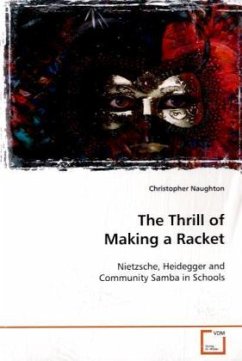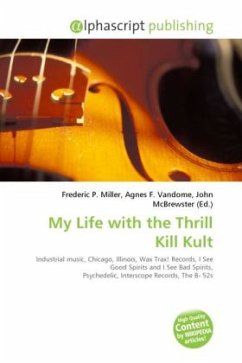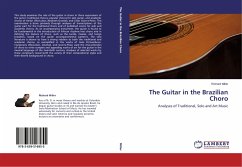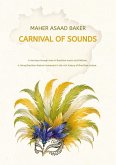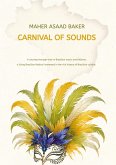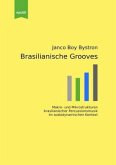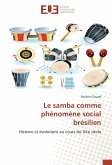With new technologies and new modes of communication
comes a new order. The samba school, a gathering of
amateur musicians who play Brazilian based
percussion, has now become a global phenomenon that
has resulted in a resurgence of music in the
community throughout the developed world.
With the popularity of samba many music teachers and
education departments have begun to incorporate samba
into their work. This book tells the account of two
case studies, in England and New Zealand, where music
education students went into schools to teach samba.
The results of the experience led many of the
students not only to rate samba as a great experience
but to question their own concept of music and
teaching in schools.
This book grew from interviews with the university
students about their samba making, to become an in
depth examination of currently held beliefs in music
education. This has led to the orgination of an
approach to music based on the work of Nietzsche and
Heidegger that is explored in this book.
This text will be of interest to music graduates,
teachers and music education and lecturers at
university level.
comes a new order. The samba school, a gathering of
amateur musicians who play Brazilian based
percussion, has now become a global phenomenon that
has resulted in a resurgence of music in the
community throughout the developed world.
With the popularity of samba many music teachers and
education departments have begun to incorporate samba
into their work. This book tells the account of two
case studies, in England and New Zealand, where music
education students went into schools to teach samba.
The results of the experience led many of the
students not only to rate samba as a great experience
but to question their own concept of music and
teaching in schools.
This book grew from interviews with the university
students about their samba making, to become an in
depth examination of currently held beliefs in music
education. This has led to the orgination of an
approach to music based on the work of Nietzsche and
Heidegger that is explored in this book.
This text will be of interest to music graduates,
teachers and music education and lecturers at
university level.

